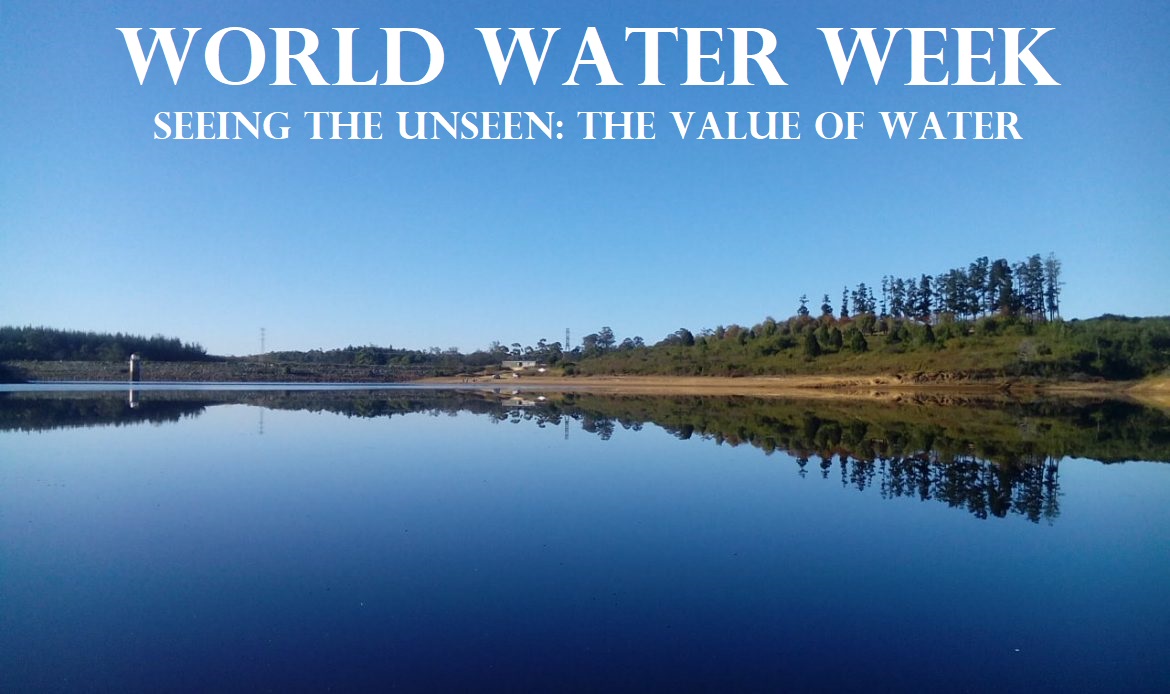This week we celebrate World Water Week under the theme of “Seeing the Unseen: The Value of Water.” This means that to understand the value of water we need to look at the ways in which we perceive the world’s water challenges. Water is a valuable resource in terms of:
- The value of water for people and development
- The value of water for nature and climate change
- The financial and economic value of water
Water is at the centre of sustainable development and is critical for socio-economic development, healthy ecosystems and for human survival.
The Department of Water and Sanitation (DWS) is the custodian of South Africa’s water resources. DWS aims to promote effective and efficient water resources management to ensure sustainable economic and social development.
Legislation:
Environmental assessments are an important technique for ensuring that the likely effects of proposed developments on the environment is minimised and the use of resources is done in a sustainable manner. As such, the National Water Act (NWA) (Act No 36 of 1998), is to be complied with in ensuring that the nation’s water resources are protected, used, developed, conserved, and managed in a sustainable manner. Environmental practitioners are to use NWA as a legal basis tool through obtaining the legal authorisation for proposed developments related to water use activities. Submissions for a water use licence is done online by the client and/or environmental practitioner.
There are four types of water use authorisations for water use activities: Schedule 1, General Authorisation, Existing Lawful Use and Licensed Water Use. The type of authorisation is dependent on the nature of the proposed water use and the likely impact the water use will have on water resources. All application processes are undertaken in alignment with the National Water Act (Act 36 of 1998).
In terms of Section 21 of NWA, the following activities constitute water uses and require an authorisation:
Section 21 (a) Taking water from a water resource.
Section 21 (b) Storing water.
Section 21 (c) Impeding or diverting the flow of water in a watercourse.
Section 21 (d) Engaging in a stream flow reduction activity.
Section 21 (e) Engaging in a controlled activity identified as such in section 37(1) or declared under section 28(1) of the NWA.
Section 21 (f) Discharging waste or water containing waste into a water resource.
Section 21 (g) Disposing of waste in a manner which may detrimentally impact on a water resource.
Section 21 (h) Disposing of waste in a manner which contains waster from or which has been heated in any industrial or power generation process.
Section 21 (i) Altering the bed, banks, courses or characteristics of a watercourse.
Section 21 (j) Removing, discharging or disposing of water found underground if it is necessary of the efficient continuation of an activity or for the safety of the people.
Section 21 (k) Using water for recreational purpose.
How can SES help?
Sharples Environmental Services has extensive experience in undertaking water use authorisation applications. We can assist in establishing if your proposed project development requires a water use license and the type of authorisation needed in terms of the National Water Act and Environmental Impacts Assessment Regulations Act.
For professional environmental services, Contact us: info@sescc.net or (021) 554 5194













